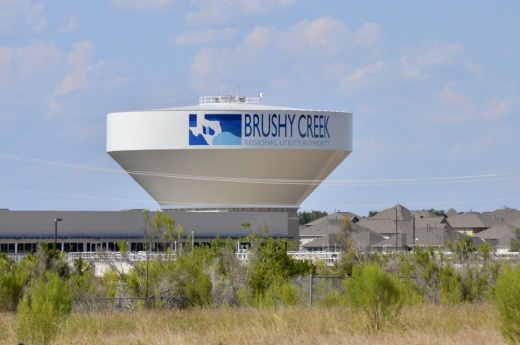Over $72 million in federal funding will go toward improving water and wastewater infrastructure in Williamson County, the Williamson County Commissioners Court announced May 24.
“Today is a historic day in Williamson County,” County Judge Bill Gravell said at the commissioners court meeting. “Providing water resources to our residents must be a top priority.”
Commissioners unanimously passed a motion to allocate $72.5 million of its remaining American Rescue Plan Act, or ARPA, funds to carry out new water and wastewater projects. Prior to May 24, Williamson County had only allocated $36.5 million of its $114 million in ARPA funds. Now, only $5 million remains.
“We have been talking about water and related infrastructure for a long time, and as the county has grown, this continues to be a big issue,” Precinct 3 Commissioner Valerie Covey said at the meeting.
Connie Odom, Williamson County public affairs manager, said Winter Storm Uri in 2021 highlighted flaws in the county’s water infrastructure.
“Several communities were either on a boil-water notice or had no water while repairs were made to systems,” Odom said. “In addition, Texas has had several years of drought.”
Seeing the need for a more extensive water infrastructure, Covey said the commissions court has been working on how to best meet the needs of the county’s water purveyors.
“The infrastructure that we could build will help with the water that the Brazos River Authority is working to bring to our county,” Covey said.
The funds will go toward 15 projects in various Williamson County cities. The Brushy Creek Regional Utility Authority will receive funding to replace a Lake Travis water intake structure, benefiting Round Rock, Cedar Park and Leander.
Hutto will build a modern, environmentally friendly wastewater line from the South Wastewater Treatment Plant to Hwy. 79. Residents and companies will be connected to this line instead of a septic system.
Round Rock and Georgetown will also construct a new water line, running from North FM 1660 to SH 130. The remaining projects are yet to be determined.
“A very important aspect is timing, because our money has a clock on it,” Covey said at the meeting.
Under the ARPA, the projects must be under contract by the end of 2024 and constructed by the end of 2026.
Covey said she would like to explore accessing more water sources long-term, such as the Carrizo-Wilcox Aquifer east of the county, but that putting the money toward infrastructure best fits ARPA’s shorter time frame.
“Does it solve all the water problems? No, but it does help alleviate some of the current needs that we have,” Covey said about the projects.
The commissioners will next begin meeting with cities to form agreements ensuring the projects have enough time and funding to complete, Covey said. She said cities would be responsible to cover any costs that the ARPA funding does not but is confident they are prepared to do so.





